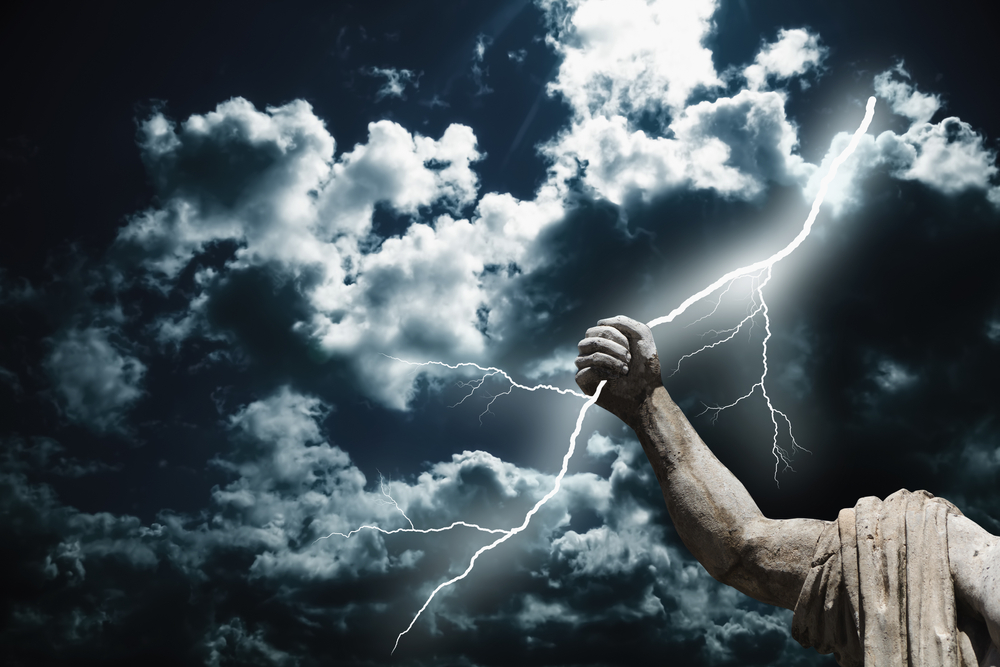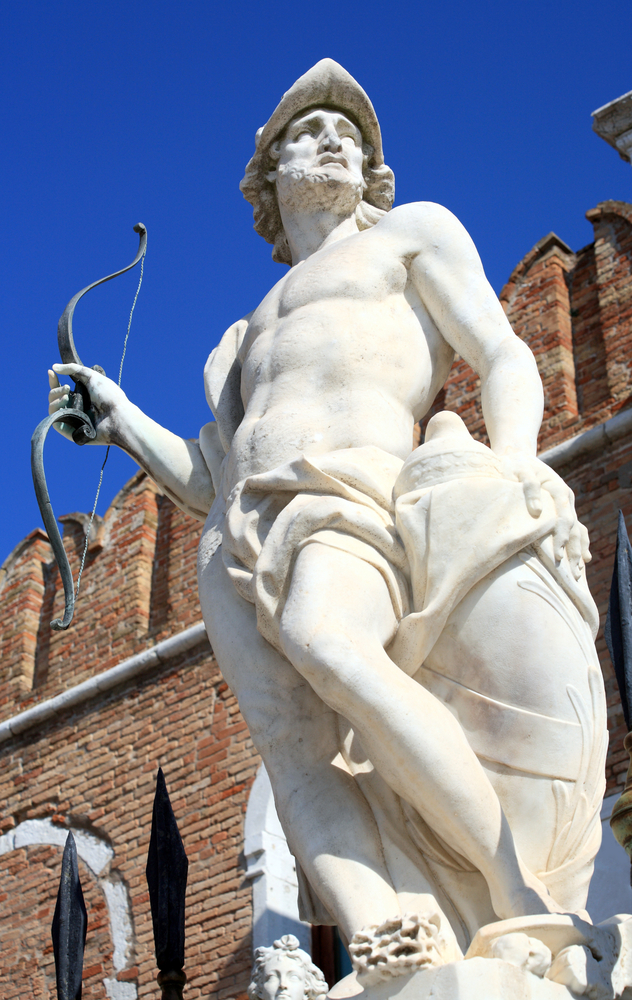Greek Mythology Overview

Greek mythology has deeply influenced Western culture, literature, and art for centuries. It comprises an extensive collection of myths and legends about a multitude of gods, goddesses, heroes, and monsters.
The core of Greek mythology features the Pantheon of deities who resided on Mount Olympus. These gods, despite their immortality and immense power, were depicted with human flaws and emotions, making them relatable and intriguing characters.
The myths of Greek heroes reveal the virtues and values esteemed in ancient Greece, encompassing courage, intellect, and honor. The tale of Hercules, known for his extraordinary strength, and his twelve labors is one of the most renowned. Another compelling hero’s story is the Odyssey, detailing the epic journey of Odysseus as he attempts to return home after the Trojan War, facing numerous trials and adventures along the way.
Greek mythology is also punctuated with mythical creatures that captivate the imagination. The Minotaur, a creature with a human body and a bull’s head, roamed the labyrinth of Crete. The fearsome Medusa, with snakes for hair, could turn anyone who dared to look at her directly into stone. These creatures added a layer of intrigue and danger to the stories, reflecting the perilous and often unpredictable nature of life.
Many scientific terms and phrases, like “Herculean task” or “Achilles’ heel,” originated from these myths. Classic novels and plays often allude to Greek myths, and countless works of art depict scenes from these enthralling stories. Even today, Greek mythology continues to inspire a wealth of movies, books, and video games.
The Gods of Mount Olympus
Starting with the King of the gods, Zeus was the god of the sky and thunder. He was known for his ability to throw lightning bolts and his control over the weather. Next is Poseidon, the god of the sea, earthquakes, and horses. He held a trident, which could stir up powerful storms.
Hera, Zeus’s wife, was the goddess of marriage, women, childbirth, and family. She was known for her jealous and vengeful nature, particularly against Zeus’s lovers and offspring. The god of war, Ares, was respected but not widely worshipped due to his quick temper and aggressive nature. He is often depicted with weapons and armor.
Athena, the goddess of wisdom and warfare, was a compassionate and generous goddess. She was admired for her strategic skill in warfare and was the patron goddess of heroic endeavor. Apollo, the god of sun, light, music and prophecy, was known for his golden lyre and his ability to bring forth light and truth.
Artemis, twin sister of Apollo, was the goddess of the hunt, wilderness, wild animals, and chastity. She is often depicted with a bow and arrows. Hermes, the messenger of the gods, was the god of trade, thieves, travelers, sports, and guide to the Underworld.
Hephaestus, described as the god of fire and forge, was the blacksmith of the gods and was revered for his metalworking skills. Aphrodite, the goddess of love, beauty, and fertility, had the power to cause love and lust among gods and humans alike.
Demeter, the goddess of agriculture, harvest, and fertility of earth, played a vital role in ancient Greek society as agriculture was a significant part of their economy. She is often depicted with a scepter or a pair of torches. Her most well-known myth involves the abduction of her daughter, Persephone, by Hades, the God of the Underworld. This myth explains the changing of the seasons in Greek mythology.
Dionysus, the god of wine, vegetation, pleasure, and festivity, is the youngest of the Olympian gods. Recognized by his grapevine crown and holding a wine goblet, he is often surrounded by a group of satyrs, centaurs, and maenads (female followers). Dionysus’s festivals, celebrated with music, dance, and copious amounts of wine, were a distinctive part of Greek culture, and many aspects of these celebrations have influenced modern-day theatre.
Lesser-Known Gods
While the Olympian gods are most commonly recognized in Greek mythology, there are many lesser-known gods and goddesses who also played crucial roles. For instance, Hestia, the goddess of the hearth and the home, was highly respected in Greek households. Another example is Hebe, the goddess of youth, who served nectar and ambrosia to the gods and goddesses on Mount Olympus, and Eileithyia, the goddess of childbirth, who was frequently invoked by women in labor. Each of these deities had a unique role and was honored in its own way in ancient Greek society.
The stories of these gods and goddesses, heroes, and creatures have captivated audiences for centuries. Through their adventures, tragedies, and victories, the characters of Greek mythology transcend time to remain an integral part of Western culture. By exploring their tales, we can gain deeper insight into our own lives and values.
Today, many people are revisiting ancient Greek mythology through modern interpretations, like the Percy Jackson book series or the Netflix show “Cursed”. These new versions offer a fresh perspective of these timeless stories and bring their characters to life in a whole new way. By engaging with Greek mythology, we can reflect on our own lives and gain an appreciation for its enduring power.
In addition to providing entertainment, understanding Greek mythology can help us better understand our own world. By connecting the ideals and morals of the past with those of today, we can gain a deeper appreciation for our shared cultural heritage. It is through such time-honored stories that we are reminded that humanity has always strived to make sense of its environment and find meaning in life.
So while exploring Greek mythology can be a fun and exciting adventure, it’s also an opportunity to reflect on our own lives and better understand our place in the world. Who knows what new insights you may discover along the way?

